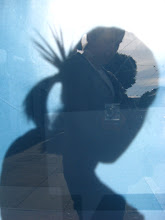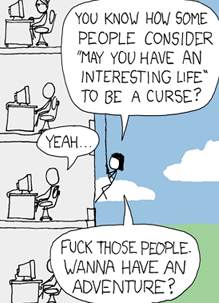Indeed, anonymous commenter, it's true the age is a remnant from a time when 16 was considered adult. My problem is that in today's society, where these tales are still being told, now by Disney instead of the old woman on the corner, they haven't adjusted the age to reflect the infantalization of today's youth. No longer are the kids today mature at 16 or equipped to make life decisions such as in regards to marriage and kids.
We've idealized the age of 16 because of leaving it a remnant. Now all our dreams are supposed to come true at that age when most kids are just trying to get through highschool and not get in yet another fight with their parents.
If we treated the kids today in such a way that they grew up MATURE enough to make such decisions I wouldn't have a problem.
Just because todays kids grow up fast, doesn't mean they grow up mature. In fact, I'd argue that the commercialism and the sexuality and violence in the media make them grow up with a lightly warped view that they then turn into reality via emulation.
P.S. Dear god I would HATE to be 16 again.
Subscribe to:
Post Comments (Atom)






3 comments:
Disney is not solely responsible (if at all) for teenagers falling in love and having a misguided belief that its their One True Love. There are so many other factors involved...just look at Romeo and Juliet, earlier than 1562. Hormones would probably be making kids do dumb things even without any social brainwashing from companies selling merchandise.
I'd wager you've identified a valid problem; but you're harping on the wrong cause behind it. Kids are naturally dumb, it's the very reason that "maturity" and "old age" tend to be collapsed together. Yesma'am, there are always exceptions, but they're usually those exceptions proving the rule.
While I think it's true that hormones lead to bad decisions irregardless of commercial input, I think it's infinitely compounded and encouraged by said influence.
I disagree that kids are naturally dumb. They are inexperienced, certainly. But I think if given more healthy influences than Disney and Abercrombie & Fitch that even young people are capable of being intelligent and making clever and perhaps even wise decisions. I happen to know quite a few kids I wouldn't consider dumb, but one thing most of them have in common is a lack of influence by or a controlled and informed or biased exposure to certain market influences.
I somewhat agree with what you say about Disney...but at the same time, I would like to point out that what you two are arguing about is the artistic representation of love. It's funny in a way to watch you two fumble with words, describing an abstract idea made of raw emotion so powerful, no one can describe. What is it you are actually defining? A long term marriage = happily ever after? A childs ability to define love, or treat it as a logical emotion, and judge relationships based on that? Because I'd like to remind both of you that all human's young and old have struggled with this. Before Disney, before theatre, and probably before written word.
I apologize for attacking the whole argument all together, but let me just propose this: Rome and Juliet, and many Disney movies are not only visual arts, but are stories that must create and paint a world, than conclude it in the same evening. The Disney large breasted heroine is unfortunately result of our cultural beauty, the quickest way to describe love at first sight, and skip much story telling. Because theatre and movies are visual arts, visual beauty is how most artists convey human emotion. Otherwise they'd write a book, or a novel. Or even a short story, which is why I'd argue that your short stories sparrow, have quite a bit more depth. You can have subtle movements and thoughts that you could never show in the big screen. If it's a subtle look, or a tricky worded sentence, there is a chance the audience will miss it on screen. But in a book, you read over every line.
Which goes back to some of the original arguments...Can marriage for love work well? Yes, but love is fleeting and requires constant maintenance. It is fragile and conditional. You can try and force conditions, but you cant force the emotion. I would argue that by tweaking the conditions any two people can find something in each other, well enough for them to stay together. It doesn't even have to be true love, whatever you define that mean. And that's one reason arranged marriages work. Yes, sometimes it can be a business proposition, but you have to realize that often times your family does know you quite well, and can arrange a marriage with someone they think you will like. It's like they only see the conditions and not emotions involved.
(lastly, and sorry for the ridiculously long post)
The unaddressed issue of the unappreciated mystical sidekick that somehow fades in to the background and goes completely under appreciated. I would have to say that this is result of our inability to conceptualize love, describe it's mechanics and tweak it to our favor. We simply cannot understand it, and it will always be our mystical goal, one that can only be solved by what seems like mystical goals. It's not that the characters aren't grateful, I am sure if the character reappeared in the story, they very well would be...(sometimes seen dancing happily with the characters during the credits)...It is more about us believing that the only way to solve matters of love is with some sort of mystical third party. Like a fairy to appear and disappear.
Heh, sorry if all that didn't make sense...It became too long for me to reread it and fix the nonsensical parts... =P
Post a Comment